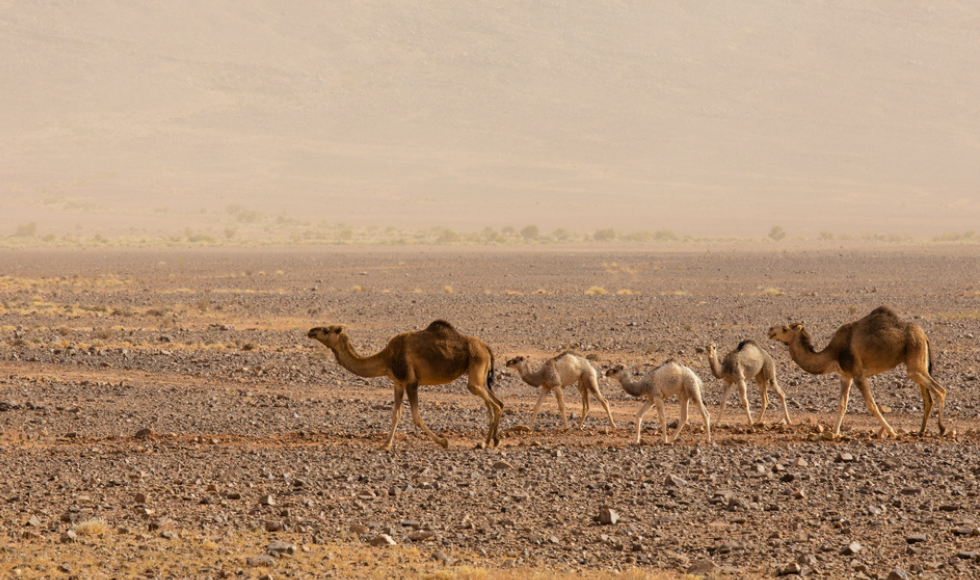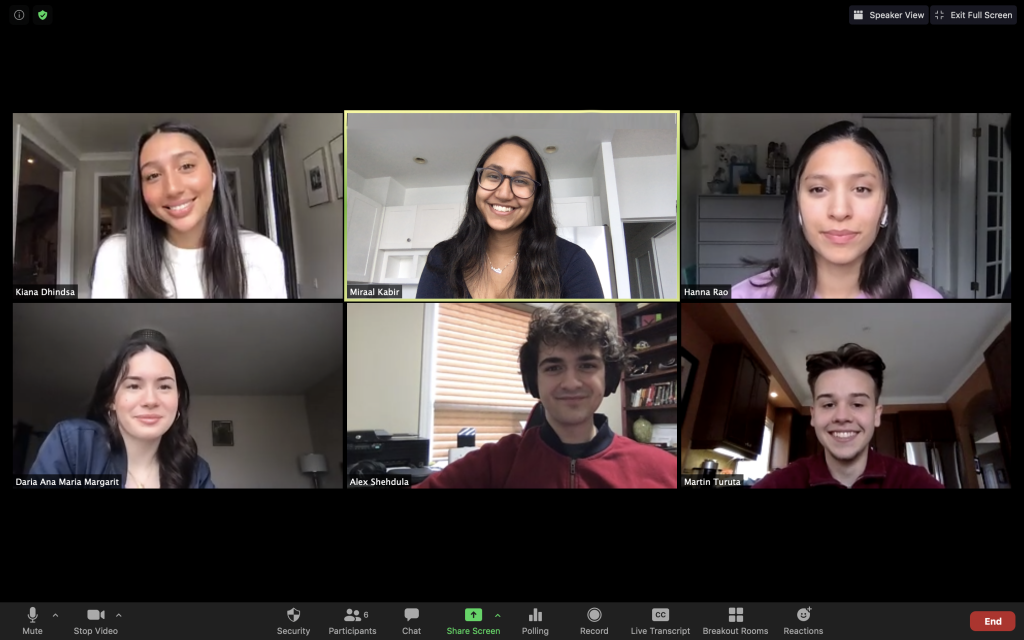Creating access to safe milk in Kenya to prevent a future pandemic

A team of students from McMaster University, Wilfrid Laurier University and the University of Waterloo earned the top prize at an international climate action competition for their innovation that aims to curb the spread of Middle East Respiratory Syndrome (MERS) – a deadly coronavirus.
A team of students from McMaster University, Wilfrid Laurier University and the University of Waterloo earned the top prize at an international climate action competition for their innovation that aims to curb the spread of Middle East Respiratory Syndrome (MERS) – a deadly coronavirus.
During the month of March, the Challenge 4 Climate Action competition brought together 200 teams of students from post-secondary institutions and high schools across 58 countries to develop innovative solutions to pressing challenges caused by climate change.
The winning team, the Golden Marauders, focused on developing a solution to curb the spread of MERS, a coronavirus that is quickly spreading in Kenya due to the impacts of climate change.
“Climate change is leading to prolonged and severe droughts in Kenya, with many herders turning from cattle to camels, as they can survive these conditions” explains Hanna Rao, Golden Marauders team member and second-year McMaster Arts and Science student.
“This coronavirus is three times more deadly than COVID-19 and is primarily spread through camels who transmit it to herders through the consumption of unpasteurized milk.”
To address this challenge, the student team developed a lightweight portable pasteurization kit that would enable herders to pasteurize milk, even if their community is far away from the nearest facility to do so. The product is named Safi, the Swahili word for pure and safe, as it allows herders to remove harmful pathogens in milk by simply attaching a handle to their pot and stirring at high temperatures:
During the ten days the team had to work on this challenge, they researched numerous pasteurization approaches before settling on a portable kit. The team also developed an implementation plan to educate Kenyan herders and encourage adoption.
Darren Lawless, McMaster’s assistant vice-president of research, innovation and partnerships, shared the opportunity to enter the competition with the campus community. He says the winning team’s work on Safi shows the magic that can happen when students are provided with the space to work collaboratively and think broadly.
“I almost fell off my chair when I saw the project because it so closely ties to McMaster’s research priorities, specifically Canada’s Global Nexus for Pandemics and Biological Threats which is all about working across fields to prevent and protect against a future pandemic” says Lawless. “The students identified this area of focus themselves – it shows me that an interdisciplinary approach is part of our DNA.”

To scale and implement their solution, the Golden Marauders were awarded the top prize of $6,000 from Convergence Tech, the host of the Challenge 4 Climate Action competition. Rao says her team will use the winnings to prototype, test and hopefully find investors for Safi.
Jean Wilson, director of McMaster’s Arts and Science program and a key support for the Golden Marauders, says she is thrilled to see how Rao and other students in the program are applying their learnings to real world problems.
“I am blown away by how our Arts and Science students are creatively applying what they learn in class,” says Wilson. “During the pandemic when people are feeling like so much is out of our control, it is gratifying and exciting to see students making lemonade out of lemons.”


